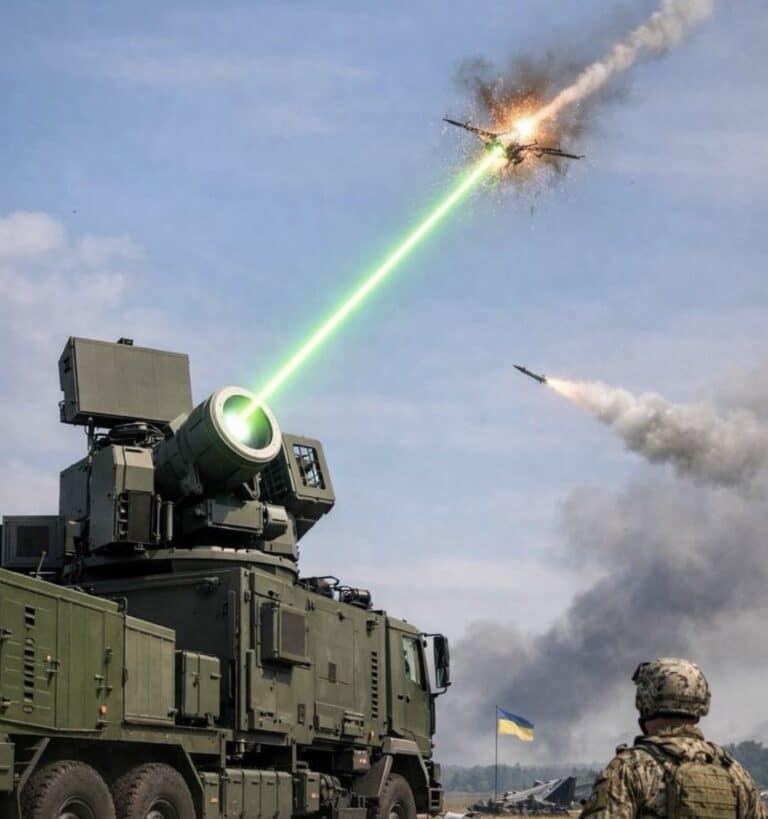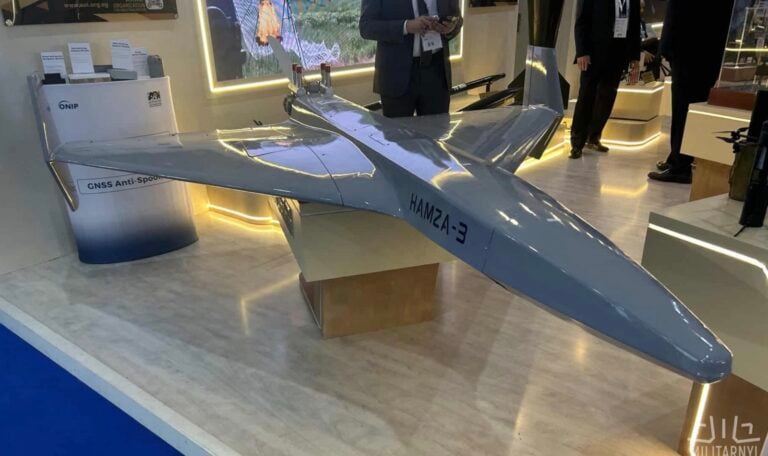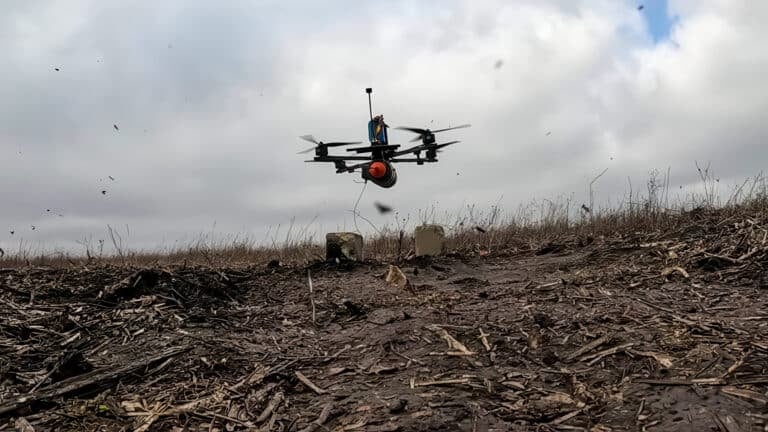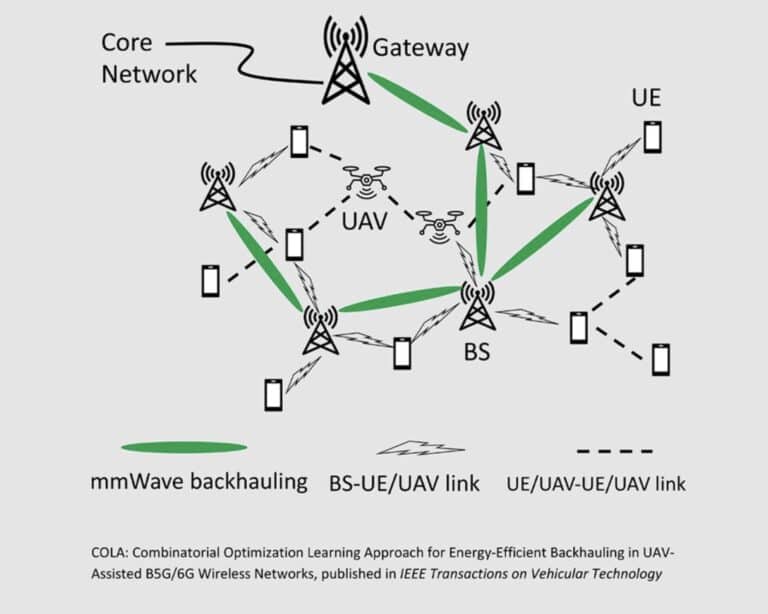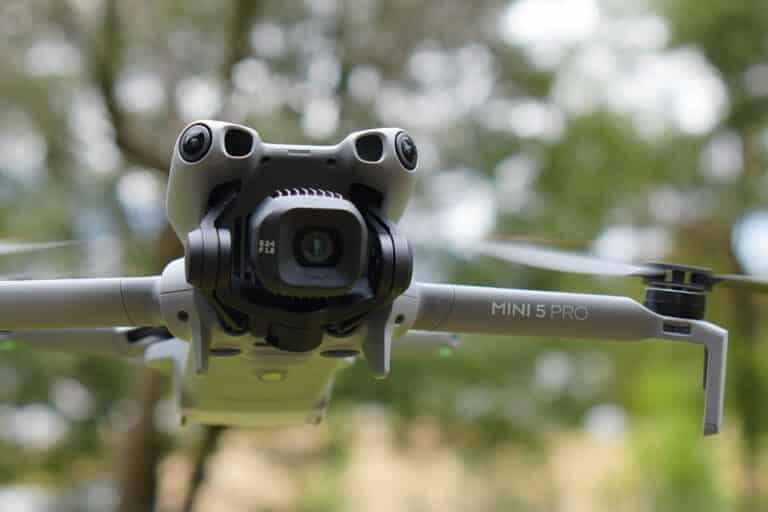Germany Awards $950M Drone Contract Despite Disastrous Test Results

Check out the Best Deals on Amazon for DJI Drones today!
Germany plans to award contracts worth up to €900 million ($950 million USD) for kamikaze drones to two defense start-ups and an established contractor, even as one company’s systems failed spectacularly during recent military trials. The Financial Times reports that Helsing, Stark, and Rheinmetall will each receive approximately €300 million ($317 million USD) to supply up to 12,000 drones for a new German brigade in Lithuania tasked with defending NATO’s eastern flank against Russia.
The decision to proceed comes just days after Stark’s Virtus drones missed all targets during October 2025 exercises with British forces in Kenya and German forces near Munster, according to defense sources cited by multiple outlets. One drone reportedly crashed after losing control, while another’s battery caught fire on impact.
Helsing Emerges as Clear Winner Despite Contract Split
While formal agreements have yet to be signed, the contracts are expected to be approved by Germany’s parliamentary budget committee. If finalized, they would represent the largest orders to date for both Helsing and Stark, two companies founded within the past two years.
Helsing’s HX-2 drone demonstrated superior performance during the October trials, with all 17 test flights recognized as successful. The electrically-powered X-wing precision munition features a range up to 100 km (62 miles), weighs 12 kg (26 pounds), and incorporates advanced onboard AI that enables operation in GPS-denied environments. The system achieved a top speed of 220 km/h (137 mph) during terminal approach.
The Munich-based company, backed by Spotify founder Daniel Ek and valued at €12 billion ($12.7 billion USD), has already begun delivering drones to Ukraine. Helsing announced in February 2025 it would produce 6,000 additional HX-2 strike drones for Ukrainian forces, following an earlier order of 4,000 HF-1 drones.
Stark’s Failures Raise Procurement Questions
Stark Defence’s catastrophic test performance has sent shockwaves through European defense circles. Founded just 15 months ago, the Berlin-based startup raised $100 million in funding and achieved a $500 million valuation despite limited battlefield validation.
DroneXL previously reported that Stark’s Virtus drones failed to hit a single target in four attempts across two separate exercises. During the German trial at Munster, one unmanned Virtus drone missed its target by more than 150 meters (492 feet) before crashing into woodland. “This was a disaster for Stark,” a person familiar with the trial told the Financial Times. “They oversold their capabilities and are now paying the price for it.”
The Virtus system, marketed as capable of carrying a 5 kg (11-pound) payload with a range up to 100 km, features vertical take-off and landing (VTOL) capability and can dive at speeds up to 250 km/h (155 mph). Stark’s investors include Peter Thiel’s Thiel Capital, Sequoia Capital, the NATO Innovation Fund, and In-Q-Tel, the CIA’s venture capital arm.
In a statement, Stark defended its development process: “We have crashed not once or twice, but hundreds of times. This is how we test, develop, and ultimately continue to deliver defense technologies like Virtus to the front lines in Ukraine.” The company opened a production facility in Swindon, England, in July 2025 and recently acquired Berlin-based startup Pleno to enhance autonomous navigation capabilities.
Rheinmetall Joins Despite Skipping Tests
Perhaps most surprising is the inclusion of Rheinmetall, Germany’s largest defense contractor, which reportedly did not participate in the October evaluation at all. The Düsseldorf-based company offered to supply the German military with its FV-014 loitering munition, also known as Raider, which was unveiled publicly in September 2025.
The FV-014 weighs 14 kg (31 pounds) at launch and features an electric motor with a three-blade propeller. It carries a 5 kg High-Explosive Dual-Purpose (HEDP) warhead capable of penetrating up to 600 mm (24 inches) of armor. With a range of 100 km and endurance exceeding 60 minutes, the system can operate in GPS-denied environments and supports swarm operations.
Rheinmetall developed the FV-014 despite an existing partnership with Israeli company UVision to produce Hero loitering munitions in Europe. The decision stems from marketing limitations for Israeli-origin systems, particularly for Ukraine-bound equipment. “Rheinmetall has managed to find a way in,” one German defense industry executive told the Financial Times.
Strategic Context: Lithuania and NATO’s Eastern Flank
The drones are expected to be supplied to a new German brigade stationed in Lithuania, created to defend NATO’s eastern flank against potential Russian aggression. Under the agreement, the three companies will provide up to 12,000 drones, though only a portion will be delivered initially.
Germany is funding the initiative as part of broader efforts to rapidly modernize its armed forces. Earlier this year, German Defense Minister Boris Pistorius stated that Germany would invest €10 billion ($10.6 billion USD) in unmanned aerial vehicles over the coming years. The country has approved a massive €377 billion ($399 billion USD) defense spending plan through 2035 covering 320 different projects.
The urgency reflects lessons learned from Ukraine, where loitering munitions have proven devastatingly effective. “The use of drones and the defense against drones is crucial for the survival of our troops on the modern battlefield,” according to German defense ministry sources cited by Reuters.
DroneXL’s Take
This contract exposes an uncomfortable reality we’ve been documenting for months: venture capital billions and aggressive marketing don’t replace the brutal feedback loop of actual combat testing. While Stark’s half-billion-dollar valuation couldn’t produce a single successful strike in controlled trials, Ukraine’s sub-$500 FPV drones are destroying Russian armor daily at deployment rates exceeding 9,000 units per day.
The contrast with Peter Thiel’s other defense investment, Anduril Industries, is striking. Anduril has secured major Pentagon contracts, built a $900 million manufacturing facility in Ohio, and successfully supplied battle-tested systems to Ukraine. The difference? Anduril focuses on proven capabilities and realistic timelines rather than rushing unproven systems to market.
Germany’s decision to proceed with this contract despite Stark’s failures raises serious questions about procurement integrity. European taxpayers deserve answers about why a company that couldn’t hit targets in controlled conditions is receiving €300 million in public funds alongside a company whose systems actually work. Meanwhile, Rheinmetall secures a third of the contract without even participating in comparative testing.
The irony cuts deep. European defense officials are literally attending classes in Ukraine to learn drone tactics because Ukrainian necessity-driven innovation has completely outpaced Western procurement systems. Denmark, the Netherlands, and the UK are establishing co-production facilities with Ukrainian manufacturers whose drones cost a fraction of Stark’s systems and actually work under fire. NATO members are scrambling to adopt Ukraine’s rapid iteration model while simultaneously funding Western startups that can’t match Ukrainian performance.
This isn’t just about one failed contract—it’s about whether Europe can transform its defense procurement fast enough to meet the threat environment Ukraine has already proven exists. As we’ve documented extensively, Germany has made significant progress supporting Ukraine with AI-powered drone systems that work. But awarding nearly $1 billion to companies with mixed or absent test results suggests the old procurement mentality still dominates, even as the battlefield demands revolutionary change.
What do you think? Should Germany proceed with this contract despite the test failures, or does this represent everything wrong with defense procurement? Share your thoughts in the comments below.
Discover more from DroneXL.co
Subscribe to get the latest posts sent to your email.
Check out our Classic Line of T-Shirts, Polos, Hoodies and more in our new store today!

MAKE YOUR VOICE HEARD
Proposed legislation threatens your ability to use drones for fun, work, and safety. The Drone Advocacy Alliance is fighting to ensure your voice is heard in these critical policy discussions.Join us and tell your elected officials to protect your right to fly.
Get your Part 107 Certificate
Pass the Part 107 test and take to the skies with the Pilot Institute. We have helped thousands of people become airplane and commercial drone pilots. Our courses are designed by industry experts to help you pass FAA tests and achieve your dreams.

Copyright © DroneXL.co 2026. All rights reserved. The content, images, and intellectual property on this website are protected by copyright law. Reproduction or distribution of any material without prior written permission from DroneXL.co is strictly prohibited. For permissions and inquiries, please contact us first. DroneXL.co is a proud partner of the Drone Advocacy Alliance. Be sure to check out DroneXL's sister site, EVXL.co, for all the latest news on electric vehicles.
FTC: DroneXL.co is an Amazon Associate and uses affiliate links that can generate income from qualifying purchases. We do not sell, share, rent out, or spam your email.







